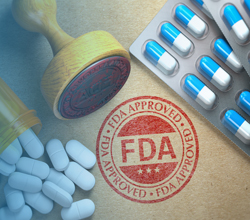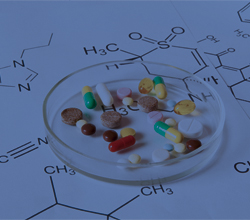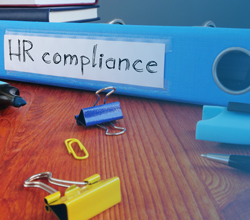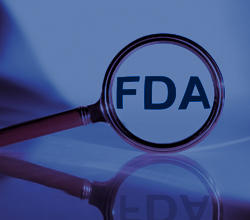
Human Error Investigations, Root Cause Determination and CAPA Effectiveness
 Ginette M Collazo
Ginette M Collazo
 90 Mins
90 Mins
Product Id: 704314
This training program will offer attendees an understanding of human error, its factors and causes. The program will also identify the regulatory and business importance of human error prevention and define the process to manage human error deviations.

Current Trends in FDA Inspections
 Michael Ferrante
Michael Ferrante
 90 Mins
90 Mins
Product Id: 703485
This webinar will focus on the current trends in FDA inspections and guidelines that can be implemented to ensure compliance with the latest quality and regulatory requirements. Attendees will learn how to prepare for an FDA inspection to avoid Warning Letters.

How to write SOP's that Avoid Human Error
 Ginette M Collazo
Ginette M Collazo
 90 Mins
90 Mins
Product Id: 704418
This training program will address the common human errors and deviations related to the use of procedures. It will also offer best practices for writing SOP’s to reduce the likelihood of human errors.

Total Organic Carbon Analysis for Cleaning Validation in Pharmaceutical Manufacturing
 Joy McElroy
Joy McElroy
 90 mins
90 mins
Product Id: 705929
In this cleaning validation webinar attendees will learn the Total Organic Carbon (TOC) feasibility, method validation and transfer from the laboratory to the manufacturing floor, as well as reviewing a feasibility study of multiple, difficult to oxidise or low solubility organic compounds.

Technical Writing for the Pharmaceutical, Medical Device and Biotech Industries
 Joy McElroy
Joy McElroy
 120 Min
120 Min
Product Id: 704531
This technical writing training program will offer attendees an understanding of how the reporting process supports products in research, development, and in the marketplace. This virtual session will highlight the mandates for documentation set forth by the regulators, such as the FDA, the ISO, and other governing bodies. The program will train attendees on effectively reviewing and revising documents and assessing your audience, in effect producing effective written correspondence.

Annual Current Good Manufacturing Practices (cGMP) Training
 Kelly Thomas
Kelly Thomas
 60 Mins
60 Mins
Product Id: 705422
This webinar provides a basic understanding and fundamental principles of Current Good Manufacturing Practices and will fulfill the requirement of personnel involved in cGMP must have documented training of current Good Manufacturing Practices. This session will focus on the FDC Act and 21 CFR federal regulations as applied to cGMP.

Computer System Validation and Part 11 Compliance
 Joy McElroy
Joy McElroy
 60 Min
60 Min
Product Id: 705427
This webinar will discuss in detail the requirements of 21 CFR part 11 and updated European Annex 11 regulation including requirements for local, SaaS, and cloud hosting. It will also offer techniques to implement a computer system using risk-based validation to gain maximum productivity and reduce cost by as much as two thirds.

FDA Ambitious Regulation of Social Media and Corporate Responsibility
 Casper Uldriks
Casper Uldriks
 60 Min
60 Min
Product Id: 703853
FDA regulates advertising and promotion material as labeling. The legal definition of labeling covers just about anything that explicitly or implicitly conveys a message intended to affect a person’s behavior and decision outcomes. How FDA applies its legal tenants of false and misleading information or variations on that theme requires continual updating by FDA and constant re-evaluation by industry. Now the regulatory landscape involves other federal agencies and academic principles in psychology. It has become very complicated and will prove very costly if you knowingly or unknowing walk into one of FDA’s legal snares. This webinar will bring attendees up to speed so you are clearer about what is a problem, what is not a problem and what becomes a risk laden judgment call.

Bacterial Endotoxin Test to Include the Latest on Low Endotoxin Recovery (LER)
 Barry A Friedman
Barry A Friedman
 90 Mins
90 Mins
Product Id: 705433
The webinar will review the current testing requirements as defined in the new, revised FDA guidance on Endotoxin and Pyrogen testing. It will further help attendees understand the issues surrounding the Low Endotoxin Recovery (LER) and its regulatory outcome.

Performing Effective Management Review of the Quality System
 David L Chesney
David L Chesney
 90 Min
90 Min
Product Id: 704933
This webinar will teach you how to conduct an effective management review of the quality system which helps you understand how to plan and focus on right metrics and governed by an efficient process. Participants will also understand FDA policy regarding disclosure of management review information during inspections.

How to Prepare a Standard Operating Procedure (SOP)?
 Dr. Afsaneh Motamed Khorasani
Dr. Afsaneh Motamed Khorasani
 60 Min
60 Min
Product Id: 705131
This webinar will detail a step-by-step procedure on how to write a practical, effective and compliant Standard Operating Procedures (SOPs), review and revise SOPs and maintain compliance over the course of the SOP life-time.

Human Error and Cognitive Load: How to Reduce Memory and Attention Failures
 Ginette M Collazo
Ginette M Collazo
 60 Min
60 Min
Product Id: 704210
This training program will discuss the types of human error, the taxonomy of human error, human error reduction initiatives, individual performance, cognitive load and human error, cognitive load categories, and more.

How to Achieve a Compliant and Effective Cleanroom Design and Facility Validation
 Charity Ogunsanya
Charity Ogunsanya
 90 Min
90 Min
Product Id: 703875
This training program will discuss designing an effective cleanroom facility validation protocol and report, when and how to transition into the routine environmental monitoring processes, how to maintain a state of control within the cleanroom, and the routine environmental monitoring and excursion investigation processes.

FDA’s Expectations from Supplier Management for GMP: Quality Agreements and More
 Danielle DeLucy
Danielle DeLucy
 60 Min
60 Min
Product Id: 704659
The FDA requires that manufacturers of pharmaceutical products have a documented process to assess its suppliers and contract manufacturers, that they have implemented that process, and that the process is effective. This training program will explore how having an effective supplier relationship management program will result in streamlining the supply chain, ensuring a more consistent level of quality components, materials and components, and be more cost effective to the manufacturer.

Root Cause Analysis - The Heart of Corrective Action
 Betty Lane
Betty Lane
 75 Min
75 Min
Product Id: 703391
This webinar will discuss how root cause is an essential part of a corrective action system and will provide some examples of how to perform root cause analysis.

Handling OOS Test Results and Completing Robust Investigations
 Danielle DeLucy
Danielle DeLucy
 90 Min
90 Min
Product Id: 704351
This webinar will review the regulatory requirements for investigating an OOS Investigation. The responsibilities of the analyst, the supervisor and QA will be discussed. A detailed flow chart will be used to help the attendees clearly understand the steps and the order in which they are to be performed. The structure of an Investigation report which properly documents the investigation will be discussed.

Good Laboratory Practices (GLPs) - Comparing and Contrasting with Good Manufacturing Practices (GMPs)
 Joy McElroy
Joy McElroy
 120 Min
120 Min
Product Id: 704086
The objective of this webinar is to compare and contrast between Good Laboratory Practices and Good Manufacturing practices.

Good Documentation Guideline (Chapter <1029> USP)
 Dr. Afsaneh Motamed Khorasani
Dr. Afsaneh Motamed Khorasani
 60 Min
60 Min
Product Id: 705130
This webinar will familiarize participants with USP Chapter <1029> on good documentation guidelines. This session will wrap up the general concept and will provide information as to what needs to be documented in certain records.

Proper Execution of Annual Product Reviews
 Danielle DeLucy
Danielle DeLucy
 60 Min
60 Min
Product Id: 704993
This webinar will give a brief overview of the general procedure for the preparation and documentation of the Annual Product Quality Review and also focuses on the regulations and the regulatory requirements as per US and Europe.

Steam Sterilization Microbiology and Autoclave Performance Qualification
 Danielle DeLucy
Danielle DeLucy
 60 Min
60 Min
Product Id: 705027
In this webinar, the steam sterilization mechanism will be described as it relates to bacterial cells and endospores. The process and key terminology are defined. Understanding these fundamentals is critical to develop a successful autoclave sterilization process.


























